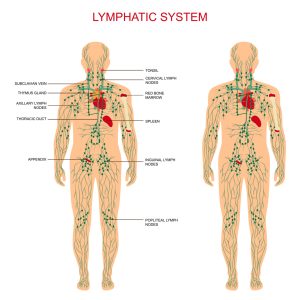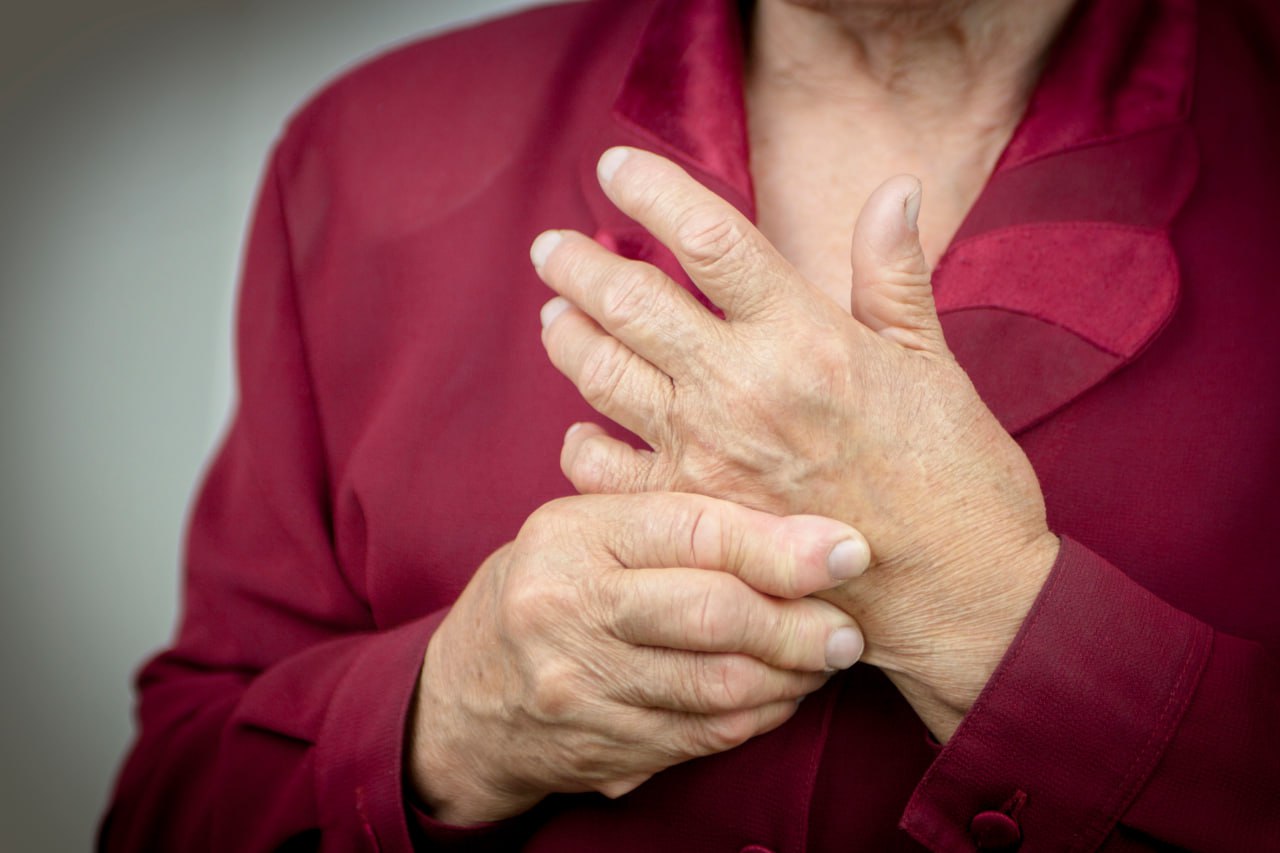Everyone has experienced swollen and tender lymph nodes at some point in their life. It’s a common symptom that can be caused by various factors. Although it’s usually not a cause for concern, understanding the underlying reasons behind swollen and tender lymph nodes can help in managing these symptoms effectively. If you are experiencing any pain or discomfort along with swollen and tender lymph nodes, you’ll want to find relief as soon as possible.
An Overview Of The Lymphatic System
The lymphatic system refers to a network of organs, vessels, and nodes that work to transport lymph fluid throughout the body. Lymph fluid contains proteins, white blood cells, and fats. The composition of lymph nodes includes immune cells such as B-cells and T-cells, which play a vital role in fighting infections.
The primary purpose of the lymphatic system is to help maintain the fluid balance in the body as well as to support the immune system by filtering out harmful substances and fighting off infections.

What Are Lymph Nodes?
Lymph nodes are tiny, bean-shaped structures that are located in different parts of the body. They range from a few millimeters to a few centimeters and are often found in clusters. Lymph nodes are usually found near major blood vessels and organs such as the neck, armpits, groin, and abdomen. There are around 600 of them, many of which you’ll never feel.
The structure of lymph nodes consists of an outer capsule composed of connective tissue, which contains lymph fluid. Inside the capsule are trabeculae, or thin fibers that divide the node into compartments. The inner part of the node is divided into the cortex and the medulla.
The cortex contains lymphatic tissue, including white blood cells, while the medulla has fewer cells and more lymphatic sinuses, which help filter the lymph fluid as it passes through.
How Do They Function?
Lymph nodes are critical to the body’s immune system. They act as filters, trapping and destroying harmful substances such as abnormal cells, viruses, and bacteria that travel through the lymph fluid. This helps prevent these substances from entering the bloodstream and causing infection or disease. The lymph nodes work closely with other systems in the body to perform their vital functions:
Immune System
The immune system is a network of tissues, organs, and cells that is responsible for defending the body against viruses, bacteria, and parasites. Lymph nodes are an essential part of the immune system and work together with other lymphoid organs, such as the spleen and thymus, to help protect the body from infections. The lymph nodes contain immune cells, which help identify and attack foreign substances.
Cardiovascular System
The cardiovascular system, also known as the circulatory system, is responsible for transporting blood and nutrients throughout different parts of the body. The lymph nodes also work closely with the cardiovascular system to maintain the body’s fluid balance. The lymphatic vessels, which transport lymph fluid, are connected to the circulatory system and help return excess fluid from the body’s tissues back into the bloodstream.
Endocrine System
The endocrine system is a collection of glands responsible for producing hormones. It plays a vital role in regulating various bodily functions. Lymph nodes work with the endocrine system by helping to remove excess hormones and waste products from the body. The lymph nodes also play a role in the endocrine system by producing hormones that help regulate immune responses and inflammation. These hormones can affect how quickly and effectively the body responds to infections.
What Leads To Swollen And Tender Lymph Nodes?
When lymph nodes become swollen and tender, it is often a sign that the body is fighting an infection or trying to filter out harmful substances. Some common causes of swollen and tender lymph nodes include:
- Infections: Fungal, viral, or bacterial infections can cause the lymph nodes to swell as the immune system works to fight off the infection. Some common infections that may lead to swollen lymph nodes include strep throat, mononucleosis, and tuberculosis.
- Cancers: Certain types of cancer, such as leukemia or lymphoma, can cause the lymph nodes to become enlarged. This is the result of the abnormal growth of cells in the lymphatic system.
- Allergic reactions: Allergies can also cause the lymph nodes to swell as the body reacts to allergens. This is often seen in seasonal allergies or food allergies.
- Skin issues: Skin infections or inflammation, such as acne or eczema, can cause the lymph nodes in the affected area to become swollen.
- Medical or oral issues: Some medical conditions or oral infections, such as gingivitis or cavities, can also cause lymph node swelling in the face and neck.
- Medications: Certain medications, particularly those used in cancer treatment, can cause lymph nodes to swell as a side effect. This is because these medications can affect the immune system and cause it to respond more strongly.
Other Symptoms Associated With Tender And Swollen Lymph Nodes
In addition to swelling and tenderness, several other symptoms may accompany swollen lymph nodes. Such symptoms can vary depending on the cause of the swelling and may include:
- Fatigue: Fatigue is when you feel more tired than normal. This can be a sign that the body is fighting an infection.
- Chills: Chills are often associated with a fever, which can be present when the body is trying to fight off an infection. When the body’s temperature rises, it can cause chills and shivers as it tries to cool down.
- Sweating: Excessive sweating, especially at night, can also indicate the body is fighting an infection. Sweating can be the result of the body’s temperature rising while trying to fight off foreign substances.
- Sore throat: Often, a sore throat is accompanied by swollen lymph nodes in the neck. This can be due to an infection or inflammation in the throat.
- Cough: A persistent cough is often a sign of an infection, which may be causing the swollen lymph nodes.
- Fever: A fever is a common symptom of infection and can be present when the lymph nodes are swollen. Fevers occur as a result of the body’s immune response to infection. The increase in body temperature can help kill off viruses and bacteria, making it easier for the body to fight off the infection.
Underlying Conditions That Contribute To Reactive Lymph Nodes
While swollen lymph nodes often result from the body’s natural response to infection, some underlying medical conditions can contribute to reactive lymph nodes. These include:
Chronic Fatigue Syndrome
Chronic fatigue syndrome (CFS), which is also known as myalgic encephalomyelitis (ME), is a complex disorder that can cause extreme fatigue along with other symptoms, such as tender lymph nodes, muscle pain, and headaches. The exact cause of CFS is not yet fully understood, but it is thought to be triggered by various factors, including viral infections and immune system dysfunction.
Crohn’s Disease
Crohn’s disease is an inflammatory bowel disease that can cause chronic inflammation throughout the digestive system. Inflammation and infection in the intestines can lead to swollen lymph nodes, particularly in the abdominal area.
Fibromyalgia
Fibromyalgia is a disorder known for causing fatigue, widespread musculoskeletal pain, and tender points throughout the body. People with fibromyalgia may also experience swollen lymph nodes as part of their symptoms.
Osteoarthritis
Osteoarthritis is a degenerative condition that causes inflammation and joint pain. Swollen lymph nodes may be present in people with osteoarthritis due to the body’s immune response to the inflammation.
Rheumatoid Arthritis
Rheumatoid arthritis is an autoimmune disorder. It causes the body’s immune system to attack its own tissues, causing inflammation and joint pain. This can lead to swollen lymph nodes due to the immune response.
Anxiety Disorder
In some cases, anxiety and stress can cause swollen lymph nodes. During times of stress, the body’s immune system can weaken. This makes it more susceptible to certain infections that cause the lymph nodes to swell.
Autoimmune System Conditions
An autoimmune system condition is a disorder in which the immune system mistakenly targets and destroys healthy body tissues. This can result in inflammation, swelling, and pain throughout the body, including the lymph nodes. Some common autoimmune conditions associated with swollen lymph nodes include:
Lupus
Lupus is a chronic autoimmune disease that can affect the blood cells, skin, joints, kidneys, brain, heart, and lungs. The exact cause is unknown, but lupus is thought to be triggered by a combination of genetic, environmental, and hormonal factors.
The symptoms of lupus can vary and range from mild to severe. Common symptoms include joint pain, joint swelling, fever, fatigue, rash on the face (also known as a “butterfly” rash), chest pain when breathing deeply, hair loss, and swollen lymph nodes.
Sjögren’s Syndrome
Sjögren’s syndrome is a chronic autoimmune disease that primarily affects the eyes and mouth but can also affect other parts of the body. It occurs when the immune system attacks the glands that produce saliva and tears, causing dryness in these areas.
In addition to dry eyes and mouth, people with Sjögren’s syndrome may also experience swollen lymph nodes, joint pain, fatigue, and other symptoms.
When To Seek Medical Attention For Lymph Node Issues
If you notice swollen lymph nodes that do not disappear after a few weeks, it is important to seek medical attention. Additionally, if you experience any of the following symptoms along with swollen lymph nodes, it is recommended that you see a doctor:
- The nodes are painful or tender to the touch
- The nodes are increasing in size
- You have a fever that lasts longer than three days
- Night sweats
- Unexplained weight loss
- Difficulty breathing, swallowing, or speaking
Diagnosing Swollen Lymph Nodes
The doctor will typically start by performing a physical exam and feeling for any enlarged lymph nodes. They may also ask about your medical history, recent illnesses or infections, and any other symptoms you are experiencing. If necessary, the doctor may order blood tests to check for signs of infection or underlying conditions. Imaging tests such as X-rays, ultrasounds, or CT scans may also be used to get a better look at the lymph nodes and surrounding areas.
Depending on the results, further testing may be needed, such as a biopsy, where a small tissue sample is removed from the lymph node and examined under a microscope. This can help determine the cause of the swelling and guide treatment.
It is important to note that swollen lymph nodes are not usually a cause for concern and will often go away on their own. However, if you experience persistent swelling or other concerning symptoms, it is best to consult with your doctor for proper diagnosis and treatment.
Conventional Treatment Options
Treatment for swollen, tender lymph nodes depends on the underlying cause. In most cases, treating the infection or medical condition causing the swollen lymph nodes will also help reduce inflammation and tenderness in the nodes. Some standard treatment options include:
Medications
Because swollen lymph nodes are often a result of an infection or inflammation, medications may be prescribed to help treat the underlying cause. These can include:
- Antibiotics: If the swollen lymph nodes are caused by a bacterial infection, a doctor may prescribe antibiotics to help clear it up.
- Pain relievers: Over-the-counter pain medications like ibuprofen and acetaminophen can help reduce inflammation and discomfort in the lymph nodes.
- Steroids: In some cases, steroids may be prescribed to help reduce inflammation and swelling in the lymph nodes. Steroids like prednisone can also help relieve other associated symptoms, like joint pain and fatigue.
- Immunosuppressants: For autoimmune conditions that cause swollen lymph nodes, immunosuppressant medications may be prescribed to help reduce the body’s immune response and decrease inflammation in the lymph nodes.
Although some of these medications can help manage swollen lymph nodes, it’s important to be aware that many medications come with potential side effects, especially with long-term use.
Injections
Sometimes, certain injections may be recommended to reduce inflammation and tenderness in swollen lymph nodes. For example, corticosteroid injections can help reduce pain and swelling in the lymph nodes caused by conditions such as rheumatoid arthritis or lupus. One drawback of this treatment option is that it typically only provides temporary relief and may need to be repeated periodically. In addition, corticosteroid injections come with long-term risks, such as weakening of the bones and decreased immune function.
Physical Therapy
Physical therapy may also be recommended for people with swollen, tender lymph nodes caused by conditions like rheumatoid arthritis or lupus. Physical therapists will provide specific exercises and stretches to reduce inflammation and improve joint mobility in the affected areas. They will also develop a personalized treatment plan to manage chronic symptoms.
Surgery
In rare cases, surgery may be recommended to treat swollen lymph nodes. This is typically only recommended for severe infections or cancers that are not responding to other treatment options. The type of surgery will depend on the underlying cause and location of the swollen lymph nodes. Surgery is rarely recommended for autoimmune conditions or other non-life-threatening causes of swollen lymph nodes due to the risks involved.
Neuragenex Neurofunctional Pain Management For Swollen And Tender Lymph Nodes
Because traditional treatments for swollen and tender lymph nodes can come with potential side effects or may not provide long-term relief, many people are turning to alternative methods such as Neuragenex Neurofunctional Pain Management. This type of treatment uses non-invasive techniques to target the nervous system and promote healing in the affected areas.
Our whole-person treatment protocol includes various non-surgical, non-invasive, and drug-free treatment modalities that can help reduce inflammation in swollen and tender lymph nodes to help manage associated pain and other symptoms. These modalities include:
Electroanalgesia
Electroanalgesia is a pain management technique that uses high-pulse electrical current to ease pain, boost blood circulation, improve mobility, and induce...
IV Therapy
IV nutritional therapy, or intravenous therapy, involves administering vital nutrients directly to the bloodstream through an IV. This type of treatment bypasses the digestive system, allowing for maximum absorption and utilization of nutrients by the...
Lifestyle Counseling
Lifestyle counseling is an approach to managing chronic pain that involves identifying, assessing, and modifying lifestyle factors contributing to an individual's pain. For example, lifestyle factors such as nutrition, physical activity, stress, sleep quality...
We Manage Conditions Causing Swollen And Tender Lymph Nodes
Because we use Neuragenex Neurofunctional Pain Management approach to target neurological issues, our treatments can help manage various conditions that may cause swollen and tender lymph nodes. Some of these conditions include:

Chronic Fatigue Pain Treatment
Chronic fatigue is a condition that causes incredible tiredness, headaches, as well as muscle and joint pain. As a result, chronic fatigue can greatly affect a person's quality of life. Thankfully, Neuragenex NFPM is a holistic, non-invasive, and...

Fibromyalgia Pain Treatment
Fibromyalgia is a chronic disorder that causes several symptoms, including widespread pain, fatigue, and cognitive impairment. Our non-surgical and drug-free treatments can help reduce the chronic pain associated with fibromyalgia. Additionally, our holistic...

Crohn’s Disease Pain Treatment
Crohn's disease is a debilitating condition that can cause pain and inflammation in the digestive tract. Neuragenex NFPM provides a non-invasive, non-chiropractic solution for managing Crohn's symptoms, which include abdominal pain, cramping, and...

Osteoarthritis Pain Treatment
Osteoarthritis is often linked to joint pain. But the impact that this condition has on your life is of much greater magnitude. If you have osteoarthritis, the chances are that you experience a pain so intense that it prevents you from climbing stairs,...

Rheumatoid Arthritis Pain Treatment
Rheumatoid arthritis can be a debilitating and painful condition that causes swelling, joint damage, and immobility. We offer a non-invasive, non-chiropractic solution to alleviate the pain associated with rheumatoid arthritis. Our treatments are designed to...
Relieve Pain From Swollen And Tender Lymph Nodes – Return To Your Active Lifestyle
Overall, swollen and tender lymph nodes can be a symptom of various underlying causes, and seeking medical attention is essential if they do not go away or are accompanied by other symptoms. Conventional treatment options may include medication, injections, physical therapy, or surgery, depending on the root cause of the swelling. However, these treatments may have potential side effects or limited effectiveness.
We offer an alternative approach with Neuragenex Neurofunctional Pain Management treatments to help reduce inflammation and manage associated pain from swollen and tender lymph nodes. With a whole-person treatment protocol and targeted modalities, we aim to help patients return to active lifestyles and improve their overall well-being. If you are experiencing persistent swelling or tenderness in your lymph nodes, consider exploring alternative treatment options with our team.
Experiencing swollen lymph nodes?




